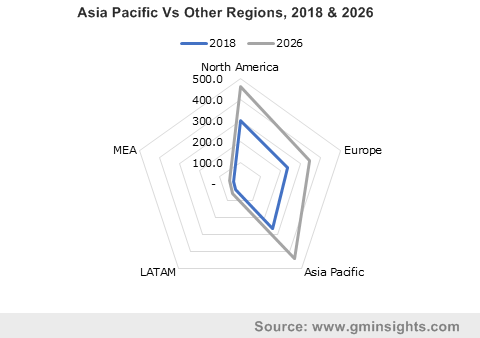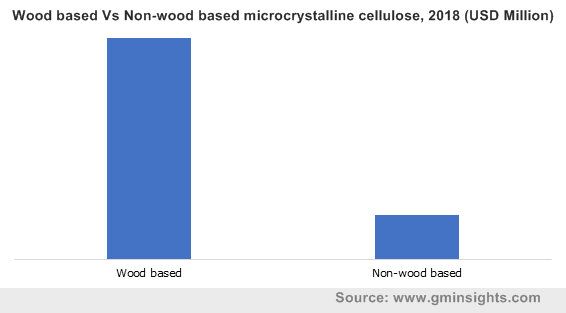Home > Chemicals & Materials > Advanced Materials > Functional Materials > Microcrystalline Cellulose (MCC) Market
Microcrystalline Cellulose (MCC) Market Analysis
- Report ID: GMI688
- Published Date: Nov 2019
- Report Format: PDF
Microcrystalline Cellulose Market Analysis
Wood-based microcrystalline cellulose market to account for major share owing to its use as fat substitute, texturizer, extender and bulking agent. The wood based MCC is majorly applicable in the drug formulation for vitamin tablets and supplements. Increasing R&D investment across pharmaceutical industry will support its implementation for medicine formulation. However, rising environmental concerns to reduce deforestation will limit its growth over the forecast timeframe.
Non-wood based microcrystalline cellulose holds significant share with its adaptation for industrial purposes. The reducing wood availability coupled with the rising pulp demand from emerging economies in Asia Pacific, Africa and Latin America will propel the segment penetration. Non-wood sources include reed stalks, sisal fiber, rice and wheat straws, jute, coconut shells, sugarcane bagasse, soya bean husk, groundnut husk and several other sources. Moreover, agricultural residues are an excellent alternative for wood-based products due to high availability and ease in accessibility.
Personal care will witness considerable growth in the microcrystalline cellulose market size owing to the improving consumer lifestyles across the globe. The product is utilized in abrasive absorbent, emulsion stabilizer and slip modifier to enhance the chemical properties. It acts as an agent to increase the aqueous viscosity and used for manufacturing hair, bath, eye & facial makeup, shaving and skincare products. Increasing individual income from countries including India, China, Malaysia and Indonesia owing to improving economic factors will stimulate the product share.
Pharmaceutical will register substantial share over the forecast owing to its use as bulking agent and laxative in medicines. The product provides increased compressibility and compatibility properties to the drug. Further, it is used in the formulation of hard tablets that can dissolve instantly for enhanced performance and provide improved disintegration and absorption that supports its application in medicines.

Improving disposable income in Asia Pacific region is influencing the consumers to purchase multiple variety of personal care products thereby driving the microcrystalline cellulose market growth. For instance, personal care sector in India was valued around USD 6.5 billion in 2016 and projected to reach over USD 20 billion by the end of 2026. Further, increasing obese population is increasing the requirement for healthy and fat-free food items in emerging countries.

